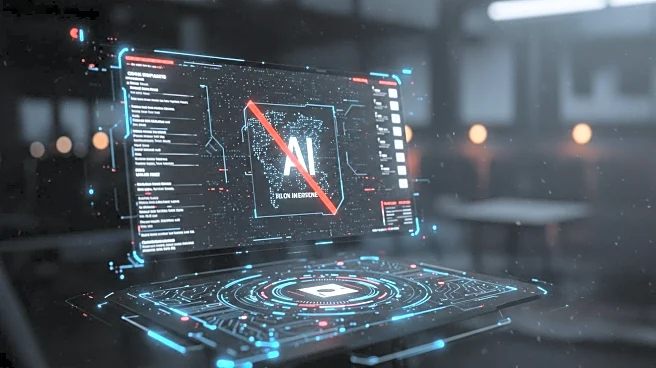What's Happening?
The General Services Administration (GSA) has announced a new agreement with Anthropic to provide its large language model, Claude, to federal government employees across all three branches for a nominal fee of $1. This initiative, part of the GSA's OneGov program, aims to expand AI capabilities within government operations, offering two versions: Claude for Government and Claude for Enterprise. The deal is designed to remove cost barriers and enable federal workers to utilize advanced AI technologies that are already benefiting the private sector. Anthropic will provide technical support and access to new model capabilities as they become available, with the contract set to expire after one year.
Why It's Important?
This agreement marks a significant step in the U.S. government's adoption of AI technologies, potentially transforming federal operations by enhancing efficiency and productivity. By integrating advanced AI tools, the government aims to maintain its competitive edge and improve service delivery to the American public. The deal aligns with President Trump's AI Action Plan, emphasizing the importance of AI in national strategy. The collaboration with Anthropic also highlights the government's commitment to leveraging cutting-edge technologies responsibly and at scale, setting a precedent for future AI integrations in public policy and administration.
What's Next?
As the agreement unfolds, federal agencies will begin integrating Claude AI into their operations, potentially leading to increased efficiency and innovation in government services. Stakeholders, including government leaders and industry partners, will likely monitor the implementation closely to assess its impact and scalability. The success of this initiative could pave the way for further AI collaborations and expansions within government sectors, influencing future policy decisions and technological investments.
Beyond the Headlines
The deal raises important considerations regarding data security and ethical AI use within government operations. As AI becomes more integrated into public services, ensuring the protection of sensitive information and maintaining transparency in AI-driven decisions will be crucial. Additionally, the partnership may stimulate discussions on the role of AI in public governance and its implications for workforce dynamics and skill development.











